You either make money, or you make history

The Factory Records Story....
Factory Records is not simply a record label. It is quite possibly one of the most significant contributions to British popular culture ever. It changed everything, the way people looked and dressed, the music they listened to, the nightclubs they danced in and even the drugs they took. There are a lot of characters in this story, from Tony Wilson, Ian Curtis, Shaun Ryder, Martin Hannett, Rob Gretton and Alan Erasmus
These would shape the record label, re shape popular culture and more importantly help change a decaying northern city into the centre of the universe.
Anarchy in the UK- Where it all started.
4th June 1976, Lesser Free Trade Hall Manchester. Punk had hit the North, the Sex Pistols were playing a first gig outside of London. The gig had been organised by Howard Devoto and Pete Shelley, two up and coming punks themselves who would later become Buzzcocks, Manchester's answer to punk. At the time it was hard for the vast majority of Manchester to grasp punk but for the forty or so people in attendance at that gig. Everything clicked into place.
In the audience that night were Martin Hannett, who would go on to play a major part in the story of Factory Records, in 1976 he was a studio engineer but by the end of this story he would have gone on to produce Joy Division, Happy Mondays and even The Stone Roses. Speaking of Joy Division, Ian Curtis, Peter Hook and Bernard Sumner were also at the gig, they would form Stiff Kittens they would then become Warsaw before they settled on the name Joy Division. A young Steven Patrick Morrissey was also at the gig, and would actually write a letter to the NME describing his disdain for the band. Mark E Smith of Fall fame was also in the audience, and finally a certain TV personality Tony Wilson was at the gig.
He knew that punk was something important, and even though the gig was only attended by 40 people. It was a culturally significant moment. As he said himself "The smaller the attendance the bigger the history. There were 12 people at the last supper."
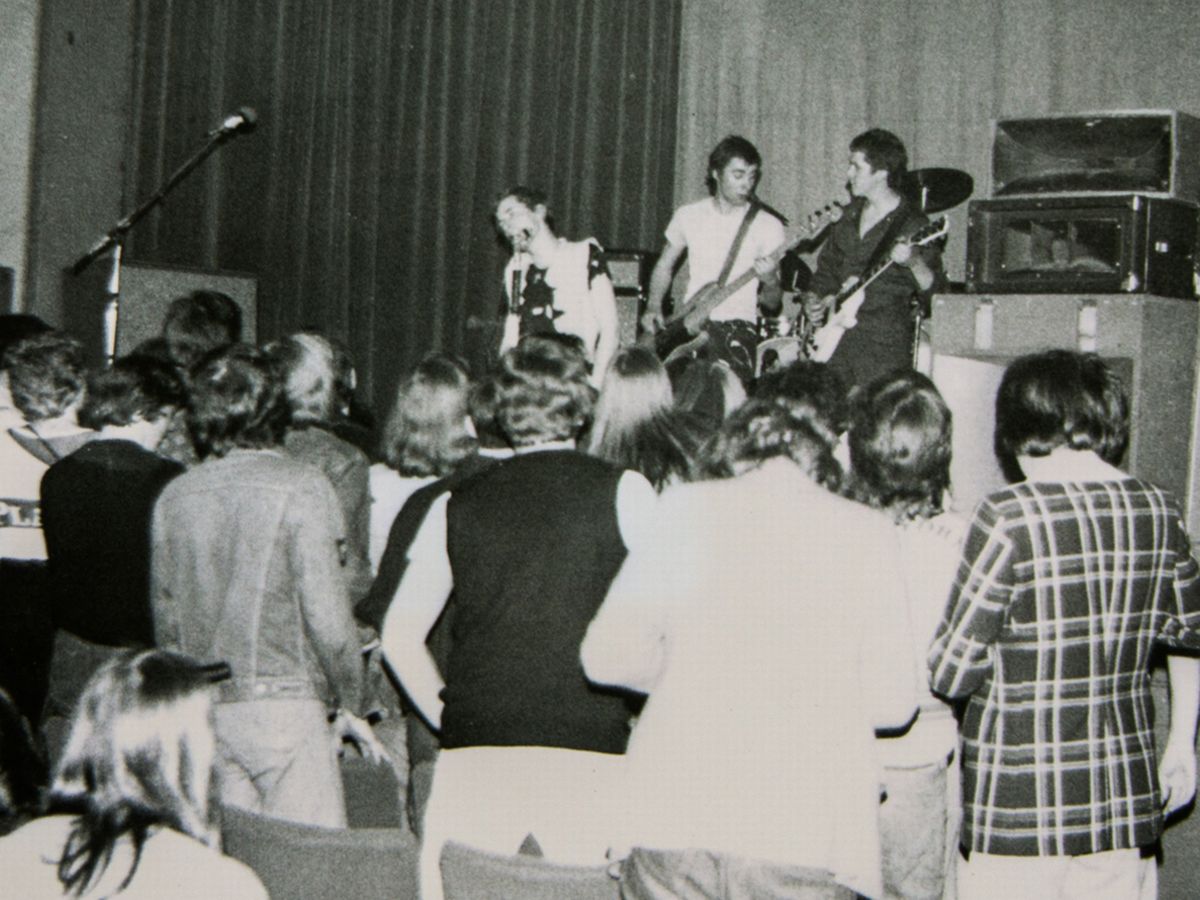
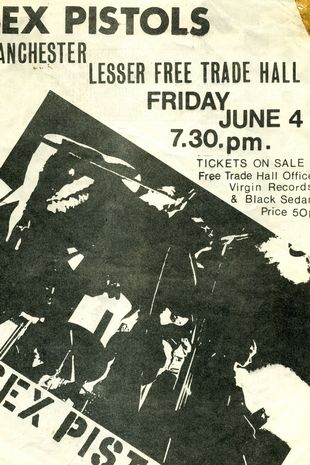
The Sex Pistols at the Lesser Free Trade Hall was just what Manchester needed, and also what punk needed. It had found it's spiritual home. In a miserable bleak cold dark Northern City.
So it Goes- Tony Wilson
Tony Wilson was inspired by the Pistols gig at the Free Trade Hall. He began to present 'So it Goes' a music program on Granada Television. The show aimed to rival the BBC's 'Top of the Pops' and it allowed Wilson to put bands on the television. Wilson was the man who gave Sex Pistols, Buzzcocks, The Clash, The Jam, Sixouise and the Banshees, and Patti Smith there first TV appearances.
He was one of the first to see just how important this new genre of music was, and he allowed the public to see and hear it first. Television performances were not enough for Tony though. He wanted more.
The success of 'So it Goes' led to Tony Wilson and friends Alan Erasmus and Alan Wise to set up a club night, at Moss Sides Russel Club, the night would be given the name 'Factory'. The night would be the first instant we would meet some more of the major characters in the Factory Records story. The Durutti Column, Joy Division, Cabaret Voltaire and The Tiller Boys. Would all play sets at the Russel Club.
It is also when we would see the introduction of Peter Saville who would design the posters and do artwork. FAC 1 was the number given for the first events poster.
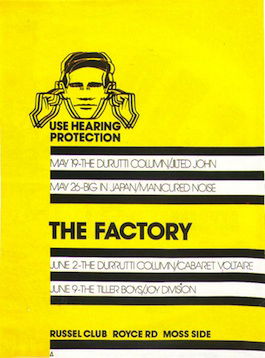
FAC 1, is the unique catalog number given to items related to Factory Records. This poster is the first item to receive a FAC number, and believe me they get a whole lot weirder.
Tony Wilson then decided he wanted to release the artists that had been performing at the Russel Club on vinyl. Factory Records was born, Tony Wilson, Alan Erasmus, Joy Division’s manager, Rob Gretton, and producer Martin Hannett were all partners in this new venture and no one could possibly foresee what was going to happen.
Factory Records would be different to every other record label before and since. The artists would have total creative freedom, as well as the freedom to leave. As Tony Wilson put it 'the freedom to fuck off'. Nothing the label did had a formal contract, Factory would not own any of the artists or any of the records. The only legal document Factory Records did have was their manifesto, "the artists own all their own work, the label owns nothing, our bands have the freedom to fuck off." Which was signed in Tony Wilson's blood, this was not simply a record label. As we will find out.
Radio Live Transmission- Joy Division
Ian Curtis, Peter Hook, Bernard Sumner had all been at the legendary Sex Pistols show at the Lesser Free Trade Hall, and along with Stephen Morris became Joy Division following two name changes. Joy Division were regulars at The Factory nights hosted by Tony Wilson, and there manager Rob Gretton was now a partner in Factory Records. It seemed inevitable that Joy Division would become Factory's first band.
The band would begin to record FAC 10 their debut album 'Unknown Pleasures' in Stockport's Strawberry Studios in spring 1979 with Martin Hannett another vital part of the Factory story. We can thank Martin and his madness for this album, it was far from the conventional recording process Drum kits were completely dismantled and reassembled on the roof of the studio; Ian Curtis’ vocals were recorded down a telephone line. He ripped up the rule book and also tore away at Joy Division's punk rawness. The album would sound the better for it. It summed up the mood of a city at the time, 'Unknown Pleasure's' sounds like 1970's Manchester, industrial, dark and bleak.
Peter Saville would design the albums iconic cover. The cover itself is based on radio waves of a pulsar. It has gone to become one of musics most iconic and recognisable covers. 'Unknown Pleasures' is a piece of artwork as much as it is an album. FAC 10 would be the first album released on Factory Records and would prove to be the catalyst for the record label itself, for Joy Division, for Martin Hannett as a producer and for Peter Saville as one of the most important designers of his era.
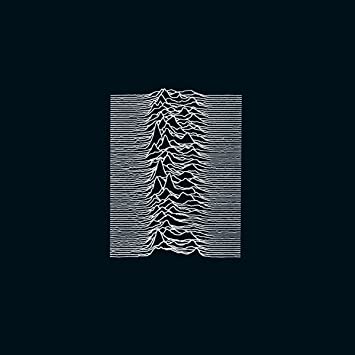
Joy Divisions story only begins with 'Unknown Pleasures' though, with there debut album they had ushered in Post Punk, which would be the soundtrack of the late 70s and early 80s in Britain. They were the first real Post Punk band and would be the catalyst for many more British bands to adopt this genre. The band would release second album 'Closer' in 1980 again produced by Martin Hannett it saw them expand on the post punk sound of their debut album.
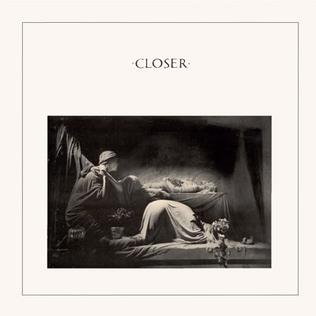
'Closer' was released in July of 1980, two months previously in May 1980 Ian Curtis committed suicide. Ian suffered with severe epilepsy, and the was finding the medication hard to deal with and was going through some personal troubles at the time. His death came on the eve of the bands first American tour. Following Curtis suicide the band felt as if they could not carry on, well not as Joy Division anyway...
Factory Records had lost it's brightest spark and a true genius. Joy Division's impact cannot be understated, their music has lived on, their album artwork is instantly recognisable and they continue to influence artists today. The bands attitude, of do it yourself is the main cornerstone of everything Factory did, before Joy Division, with Joy Division and long after the end of Joy Division.
I'll Find My Soul as I Go Home- New Order
New Order rose like a phoenix from the ashes of Joy Division. Hook, Morris and Sumner felt they needed to carry on but they did not want under the Joy Division name, they wanted to start anew. From that New Order was born. The bands impact cannot be quantified it is simply too great and profound.
At every part of the Factory Records story New Order were there. In ways good and bad. They would change not only their sound but the musical landscape in Britain almost overnight. Give Factory it's only number one single and help make Manchester the centre of the musical universe.
New Order's debut album 'Movement' FAC-50 was released in 1981 and like the two previous Joy Division albums was produced by Martin Hannett, it would be the first and last album that he would produce for the band. Hannett was struggling to deal with the loss of Ian Curtis and his drug taking had become worse. The band were finding it harder and harder to deal with him. Movement was essentially an evolution of what they had been doing in Joy Division.
The bands second and arguably best album 'Power Corruption & Lies' would see them step out of the shadow of Joy Division. But before that...
They would release an era defining single. 'Blue Monday' FAC-73. A song that would see New Order step away from post punk and lead us to the dance floor. Sequencers and Synthesizers were order of the day. It saw the band embrace New York dance music, and give it an industrial Mancuian feel. 'Blue Monday' has become synonymous with Factory Records, New Order and Manchester. Everything about the song is iconic, from Peter Saville's cover designed to look like a Floppy Disk (which cost so much Factory would lose 10p on everyone sold, even worse when Blue Monday became the best selling 12 inch single of all time) to the futuristic sound which still sounds fresh and contemporary even today in 2023.
'Power Corruption & Lies' FAC-75 followed 'Blue Monday' and was the album that really changed things for New Order, even today people consider it the bands best album. I would find it hard to disagree. The album has some New Order classics on it 'Age of Consent','Leave Me Alone' and 'Your Silent Face' are all on this album. It was also the first time that Martin Hannett had not taken the producers seat, so the band were on there own with help from capable studio engineer Mike Johnson. They were allowed to develop this new sound which saw them embrace new technology but also the melancholic side that had gotten them here in the first place. Another classic Peter Saville cover adds to the album based on the painting A Basket Of Roses by French artist Henri Fantin-Latour. Along with the cover for 'Unknown Pleasures' it would go on to become one of the most recognisable album covers released by Factory Records.
New Order would release 'Low Life' FAC-100 in 1985 another career high, it saw the band effortlessly infuse there styles together and would give fans some of the best New Order songs to date. 'The Perfect Kiss' saw the band embrace synth pop more than they ever had before, it would become a fan favourite and a huge success for the band. 'Love Vigalantees' one of the most underrated New Order songs is on 'Low Life' a real guitar anthem which harks back to the bands Joy Division days, 'Low Life' showed a band that could do both. 'Brotherhood' FAC-150 was released a year later in 1986, and this album would act as an album of two parts and where the rock and electronic split would really start to show. It's still a brilliant record though and contains some of the very best New Order songs, including 'As it Was When it Was' “A vision of Manchester at its bleakest,” according to Hook. 'Bizarre Love Triangle' is also on this album which would be a look to the future. As to what the band would release three years later.
In 1987 New Order would release a compilation album, 'Substance' FAC-200. Why did they do this? Well so Tony Wilson could listen to all of the bands singles in his car! New Order had a reputation of releasing 12 inch singles, not all of which would be featured on the bands albums. These singles were pieces of art in there own right. Usually with covers designed by the legendary designer Peter Saville. These singles would go onto record as 'Substance'. The songs on this album are unbelievable 'Ceremony' FAC-33, 'Tempation' FAC-63, 'Blue Monday' FAC-73, 'Thieves Like Us' FAC-103, 'The Perfect Kiss' FAC-123, 'Bizzare Love Triangle' FAC-163 and 'True Faith' FAC-183' along with songs like 'Confusion' and 'Subculture' it gave fans a place they could listen to all of these great songs. New Order's discography rivals any other British band in the 80s, in fact it is one of the best. All of these songs are classics of their time and are still absolute masterpieces.
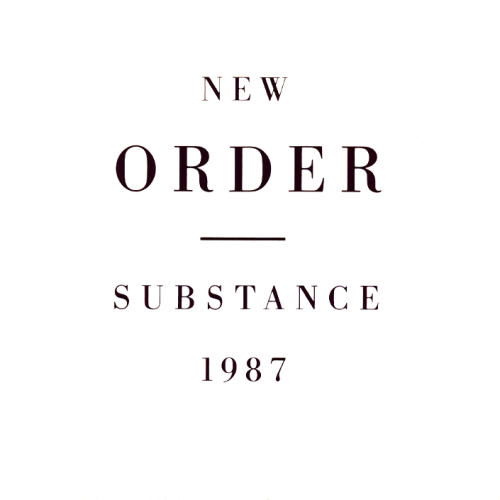
New Order's first number one album would arrive in 1989. 'Technique' FAC-275 is an absolute masterpiece which took perfect post punk, and added electro pop anthems to the mix, the result well it's quite astonishing. The band would write some of the album in Ibiza, on the most expensive holiday they ever had. According to Tony Wilson. The Ibiza sound can definitley be heard on the album especially on songs 'Fine Time' and 'Vanishing Point' but the album sounds like it does thanks to the band taking to Bath! Not quite the Balearic's, but they would record the album at Peter Gabriel's state of the art Real World Studios. The state of the art studio allowed the band to envisage all of there ideas and 'Technique' showcases arguably New Order at there peak. 1989 would be a game changing year for Manchester but more on that later...
1990 New Order were on the verge of a break up, recording 'Technique' had been a difficult experience and there was constant infighting about where it was going and what the band should sound like.
So imagine when Tony Wilson offered New Order's service to long time friend and Football Association press officer David Bloomfield. To do England's official World Cup song for Italia 90. Even though the band was on a hiatus and each member was working on solo projects. It seemed like a recipe for disaster!
It wasn't. New Order had a classic pop song and featuring comedian and British legend Keith Allen as well as a rap from John Barnes, they had struck the jackpot. 'World in Motion' is not a great football song, it's a great song. It doesn't sound like a gimmick. The song would give New Order and Factory Records their first and only Number One single.
It was the most unlikely number one for everyone involved but that is what made it brilliant. It summarizes Factory Records perfectly in a way.
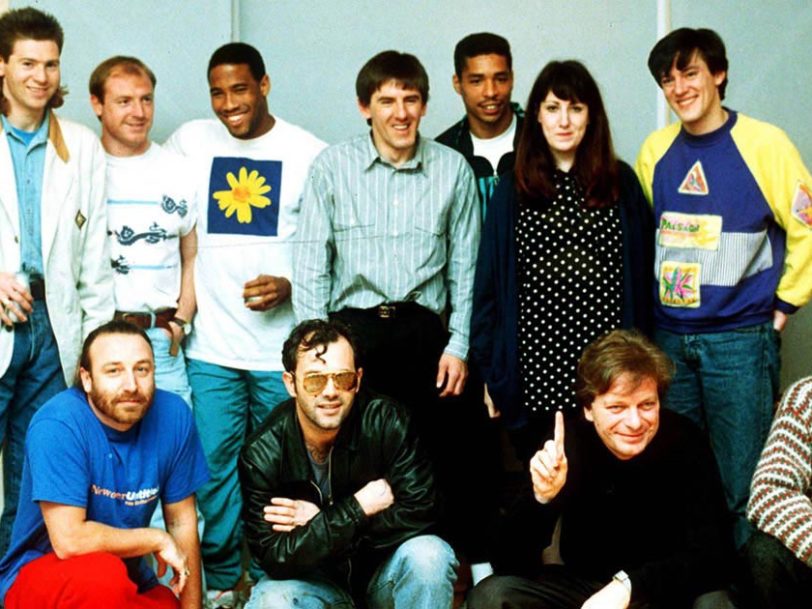
New Order would release one more album with Factory Records 1993's 'Republic' FAC-300 it was released at a turbulent time for both the band and record label. Stephen Morris said this about the album 'I find Republic very difficult to listen to objectively these days.' It was an album that was difficult for the band to make. The album was supposed to save Factory Records from bankruptcy (more on that later) and sadly it didn't. 'Republic' is the weakest New Order album in my opinion and although it spawned the brilliant song 'Regret' the last great New Order single, it is a relatively forgettable album
Everything Starts With An E- The Hacienda
In 1982 Factory Records found themselves at a cross roads. Martin Hannett wanted the label to build a recording studio, he believed that after one album the studio would have paid for itself. (He was right). However Factory decided on something completely different, New Order and Rob Gretton had been to America in 1981, and had seen the New York club scene. It's safe to say that they were impressed and they wanted to bring something like that to the UK and more specifically Manchester.
FAC-51 was concieved, 'The Hacienda must be built'
The club was be joint owned, New Order would own 50% and Factory Records the other 50%. Which also meant New Order would pay for 50% and Factory the other 50%, it did not always work like this. It would also the final straw for Martin Hannett he quit the label after finding out the club cost £450,000 (taken out of Factory Records’ recording budget). Factory had lost one of its founding members, and the money issues were only just starting.
At the beginning the club did not suit Manchester, Ben Kelly (The Hacienda architect) had designed the club at his take on the New York scene but with an industrial Manchester feel.
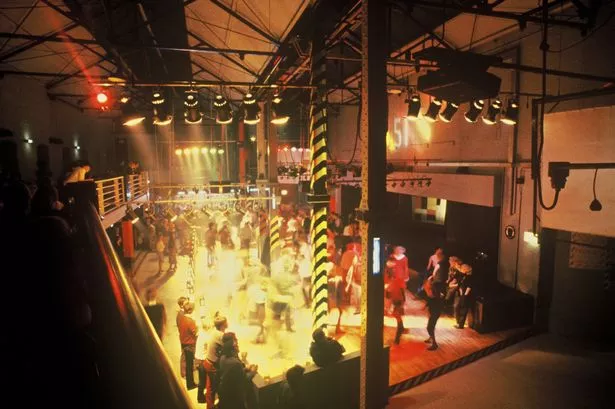
The club was a large space, and in the early days often felt empty and cold. One thing that the club did have going for it though was that bands and artists were willing to play there, mainly due to the persuasion of the Hacienda's chief booker Mike Pickering. He managed to get some of the most prominent bands and artists of the time to play at the Hacienda.
The Smiths traveled up to the club in February 1983 after a performance on the BBC's Top of the Pops. It is even more staggering to find out that the performance at the Hacienda was only the bands third show playing together.
https://www.youtube.com/watch?v=gqpF82F1U-g and you can watch that now infamous show here.
It wasn't just The Smiths though that played the legendary venue, of course Factory's Roster would play there regularly. New Order would give 'Blue Monday' it's first live outing in January 1983 at the club. Happy Mondays (more on them later) played the club a few times, including a support slot for New Order. The Stone Roses played twice, once in 1985 and again 1989 just as the band were about to release their now seminal debut album. Oasis would play on 5 September 1994 to promote the release of Definitely Maybe. Even Madonna played in 1984. The club managed to get these artists on the cusp of there fame and although not all of them were signed to Factory. The Hacienda would help shape these artists and bands careers even just a little bit.
It would also make Manchester a hotbed for music and just as Tony Wilson's show 'So it Goes' had opened peoples eyes to new music, the Hacienda had given these people a place to go. The congregation had its Cathedral.
1986 would be the year where the Hacienda exploded though. In previous years other than when there was a gig on, the club was dead. New Order were pumping money into what could have been perceived as a 'White Elephant'. It got that bad Peter Hook once claimed that New Order would have been better off if they’d given ten pounds to everyone who ever came to the Hacienda, sent them home, and not bothered with the club at all. It was losing money at a drastic rate.
It would change overnight though, and this where some very important people enter the story. Mike Pickering, Graeme Park, Dave Haslam and Jon Da Silva. These would help birth club nights at the venue, which would play a new type of music. House. Which would later become Acid House. 'Temperance' and 'Nude' were the first two club nights hosted by the club. 'Nude' was Mike Pickering's night and 'Temperance' belonged to Dave Haslam.
These nights did not have a music policy, they would play anything. Club culture was changing...
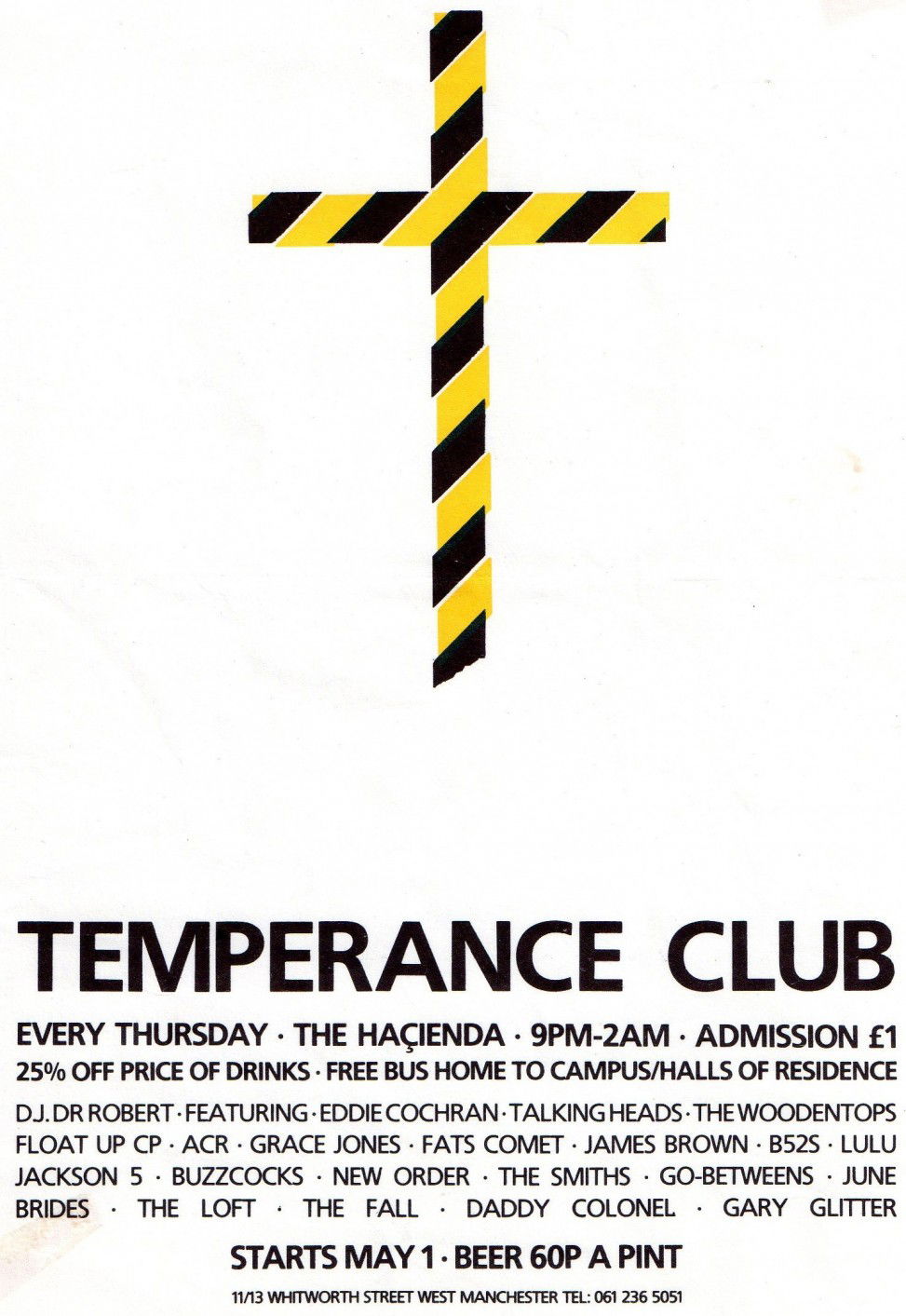
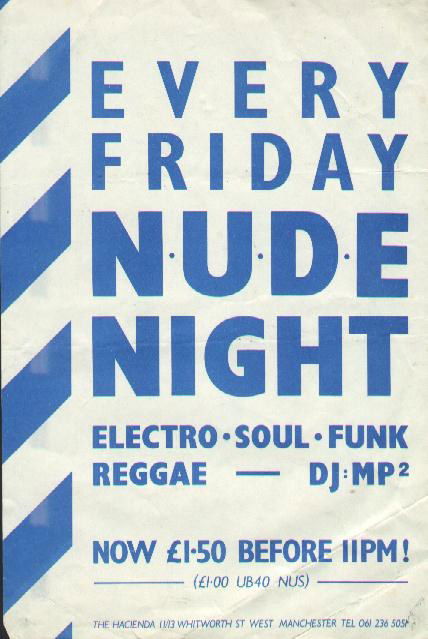
'Nude' was the night that proved to be most significant in the Hacienda changing the club would book less bands and this would be the catalyst for the club doing more and more club nights. Originally just Mike Pickering's night in 1987 he was joined by Graeme Park and things really started to take off. They would be getting 1200 people in every Friday by playing this new music Acid House.
To coincide with this new music, there was a new drug 'Ecstasy' the emergence of this drug helped the scene more and more. It made people want to dance, even Noel Gallagher! He said it himself that the Hacienda was the first place he danced.
The late 80s in Britain was a turbulent and divisive time, Thatcher was in charge and she was at war with the North and the Working class. More and more people were being pitted against each other, and yet at the Hacienda, there was a sense of community a sense of belonging which was being fuelled by this new music and this new drug. Around this time Manchester started to produce it's own house music. Two of the most defining tracks of this era would come from Manchester, 808 State 'Pacific State' and A Guy Called Gerald 'Voodoo Ray'
The emergence of these nights at the Hacienda changed so much. There was no music policy, there was no door policy. Anyone was aloud in, music from all different genres was being played. Nightclubs were no longer dark dingy rooms with one genre of music, and men going out on the pull. The Hacienda changed that, in some ways it was the birth of the superclub. In other ways it was the catalyst for underground rave culture.
'Ecstasy' proved to be a problem for the club in more ways than one, yes it had sparked a musical revolution but no one was buying alcohol. The club would actually become the UK's biggest seller of bottled water. Due to the effects of the drug. Having drugs being prominent in the club also lead to the wrong type of clientele being around. On the 14 July 1989, the UK's first ecstasy-related death occurred at the club; 16-year-old Clare Leighton collapsed and died after her boyfriend gave her an ecstasy tablet.
The police began to clamp down on drugs and the club was forced to close briefly in 1991 and for some that was the end of that. Mike Pickering would resign. Violence was taking over the club was having more and more gang related incidents. Manchester's underworld were becoming increasingly involved with the club. Whether that was managing the door, running the drugs. Or even worse stabbings and shootings inside. Factory and the club had money problems too, the peak from 1987 to 89 had helped but the club still struggled and in 1997 the club closed forever.
Leaving behind a whole host of brilliant stories, and some great music.
The impact of the Hacienda is hard to justify. It was such a significant place for so many people. New Order changed there sound because of it, Happy Mondays became a band because of it. Noel Gallagher had a drug fueled Epiphany on it's dance floor, Madonna was introduced to UK audiences. It helped birth Manchester's fledgling LGBTQ+ scene with 'Flesh.' Madchester was born, Rave culture is directly related to the Hacienda. What I have written here cannot due it justice.
https://www.youtube.com/watch?v=ywqvSYCIIUM this documentary can though.
As can Peter Hook's book 'How not to Run a Nightclub.'
Hallelujah- The Happy Mondays & Madchester
One of Factory's most successful bands were Happy Mondays, the band were also one of the successes of the Hacienda. It was there they first appeared on Tony Wilson's radar, after coming last in a battle of the bands competition. Yet he signed them anyway. This was in 1987 and Acid House was just emerging. The Mondays would take this danceable sound and combine it with there ramshackle guitars and drums to create their unique sound.
Debut album, /Squirrel And G-Man Twenty Four Hour Party People Plastic Face Carnt Smile (White Out' was released in 1987 and featured the singles 'Tart Tart' and '24 Hour Party People' and was produced by John Cale of Velvet Underground fame. Manchester had a new band, and they were only just getting started.
'Bummed' would follow a year later, and was produced by Martin Hannett who, though no longer part of the Factory team, continued to produce a number of albums for artists on the label. The Mondays were unlike any other band on Factory. They did not have the glamour of New Order, the variety of sounds as A Certain Ratio, but that is what drawed Tony Wilson to then. 'Bummed' would prove that Wilson was right it would provide the classic songs 'Wrote for Luck' and 'Performance'
1989 is where Manchester would become Madchester. Through two bands, The Stone Roses and Happy Mondays. The Stone Roses would release their seminal and now legendary self titled debut album, and Happy Mondays would release 'Madchester Rave On' featuring the club mix of there song 'Hallelujah.' which had been remixed by Paul Oakenfold and Steve Osborn who would go on to produce the next Monday's album.
Before that both bands would perform on Top of the Pops on 30 November 1989. The Stone Roses would perform 'Fools Gold' and Happy Mondays would perform 'Hallelujah' with special guest Kirsty MacColl. It was the 'Second Summer of Love' and Manchester was the centre of the universe. They had the best bands, the best nightclub, the best songs, the best albums and at the centre of all of that were Factory Records.
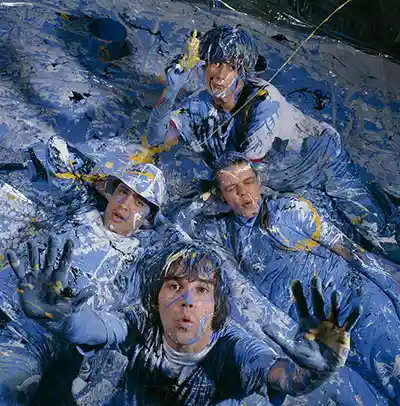
1990 would see Happy Monday's release ' Pill’n’Thrills And Bellyaches' the bands best fusion of dance music and indie rock. The bands dance orientated melodies became the perfect partner for Shaun Ryder's mad lyrics. Tony Wilson thought that highly of Shaun's lyrics he once compared him to poet W.B Yeats. This album is the peak of the Monday's with a band experimenting with different sounds, influenced by both the past and the present. With nods back to the 60s but also sounds of Acid House and Ibiza sprinkled throughout the record. 'God's Cop' perfectly sums up the band. The song title is a sardonic sideswipe at hardline police constable, James Anderton, who at the time took a tough stance on rave culture and drug use, and contains some of the bands most iconic lyrics. God laid his Es all on me“, and it’s not hard to imagine Ryder himself having a MDMA-fuelled ‘direct line to God’ at 2am in the Hacienda. It sums up the band perfectly. The album also gave us 'Kinky Affro' and 'Step On'
Baggy and Madchester was in full flow, and the Monday's and Roses were the two most important bands in the world. People were inspired musically, and their fashion had started to take off. Manchester was the centre of everything, people wanted to sing, dance, talk like, walk like, be Mancunion.
Noel Gallagher recalled The Sun newspaper, running a piece of how to talk Mancunion. The tourists had taken over, Manchester wasn't an indie scene anymore. It had become the centre of popular culture, music, fashion, art. Factory Records was the main catalyst for this.
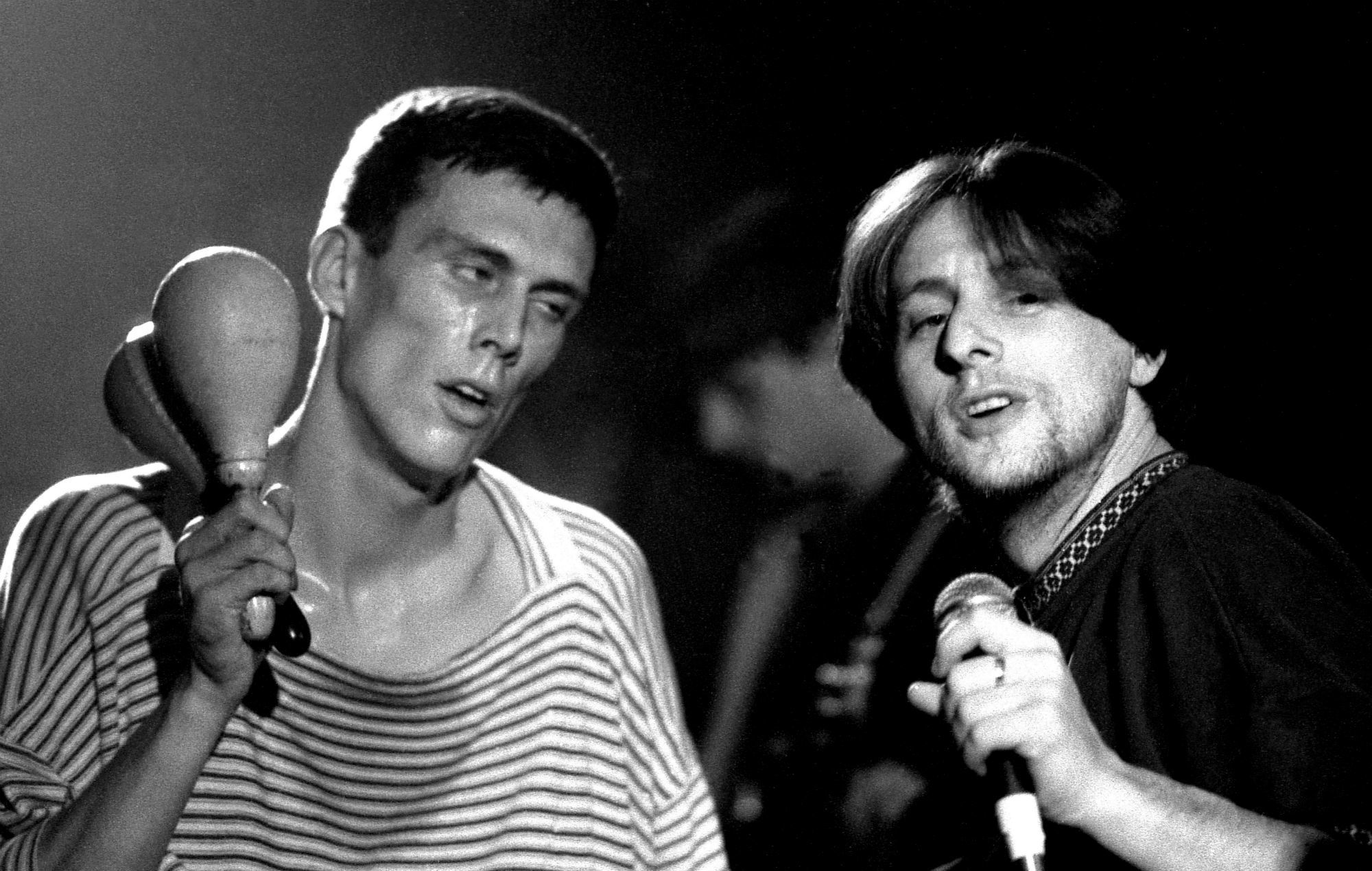
The band were on top of the world but it was all about to come crashing down.
It’s often been said that New Order built the Factory Records empire. If that’s the case, Happy Mondays tore it all down. That is quite a broad statement but most of it is true. The Monday's were arguably a big part of the peak of Factory Records but they were also a reason for its down fall.
1991 the band are on top of the world, riding high off the success of 'Pill’n’Thrills And Bellyaches' but the band were facing problems Shaun and Paul Ryder were Heroin addicts, and to ensure that they recorded an album they were shipped over to Barbados, there was no Heroin on the island and they had taken four weeks worth of Methadone for the trip, that didn't make it any further than Manchester Airport. Although there was no Heroin on Barbados it just happened to be the Crack Cocaine capital, and the band were hooked. They began to sell the studio equipment to fuel there next fix.
Upon the bands return to England, Shaun took the master tapes for the album and held them for ransom (this is shown brilliantly in the film 24 Hour Party People.) Once Factory had the tapes back, there were no vocals at all. The whole Barbados trip had been a disaster and by the time the album 'Yes Please' was finished in 1992. The Madchester scene was over. All eyes and ears were on Seattle and Grunge.
Don't Walk Away in Silence- The End
Factory was struggling financially, the Hacienda was draining away funds, and they were still waiting on a New Order album. 'Technique' in 1989 had proved to be an expensive album to record. 'Yes Please' had proven to be a disaster. Money was running out and the label had nothing to release.
The label's punk ethos and lack of contracts also proved to be a hindrance during this process. London Records wanted to buy the label from Tony Wilson but the blood signed piece of paper being the sum total of the paperwork. Meant that they did not have to. Factory owned none of the rights to most of the artists on the label including New Order.
Factory Records was declared bankrupt on 22 November 1992; the Hacienda closed its doors on the 28th of June 1997.
Although it was not the end that Factory Records wanted, they had not sold out. They had become the first indie record label. Helped change a music landscape, create a new musical landscape, formed a counter culture and given a city something to be proud of.
The impact of Factory Records goes beyond the Hacienda, the albums, the singles. It is Manchester.
Without Factory Records, The Smiths are not as successful as they are, neither are The Stone Roses. Creation Records, Food Records the indie labels of the 90s would not have happened and without those. No Oasis, no Blur.
Mike Pickering, Graeme Park and Dave Haslam were the first to bring House music to the UK and play it to UK audiences, the linage of that can be seen still today. Rave Culture was born.
The Happy Mondays and New Order created guitar music that you could dance too.
People still talk about the Hacienda today.
The album covers are pieces of modern art.
Even away from the big bands Factory had, they had some hidden gems. Section 25, The Durutti Column, A Certain Ratio, Quango Quango. Who all had their own unique sound and story and who each played a vital part in the rise and fall of the label.
The label didn’t take itself too seriously either. Factory’s number system is the best example of this. It wasn’t just albums and singles they labeled. With these numbers. FAC-61 was the label given to the lawsuit between Martin Hannet and Factory Records. FAC-83 a label for the Hacienda’s first birthday party. FAC-99 Dental Surgery for Rob Gretton! FAC-401 the film that inspired this post, the brilliant 24 Hour Party People!
FAC-501 Tony Wilson’s funeral.
From gigs at the Russel Club right through to the end.
Arguably the most influential and important independent record label in the history of music, Factory Records became a cultural institution in Manchester and further a field. After its innovative, indulgent 14-year run, it left behind countless tales that have been passed on through generations. Run on sheer civic pride and faith in the music, Factory Records revolutionised the industry and changed the way generations of musicians think.
I'll leave you with the words of the great man himself...
"Most of all, I love Manchester. The crumbling warehouses, the railway arches, the cheap abundant drugs. That's what did it in the end. Not the money, not the music, not even the guns. That is my heroic flaw: my excess of civic pride." ~ Tony Wilson
Thank you for reading, and remember 'When forced to pick between truth and legend, print the legend.'
For Tony Wilson, Ian Curtis, Martin Hannett, Rob Gretton, Joe and finally Manchester and all those who have and do call it home.